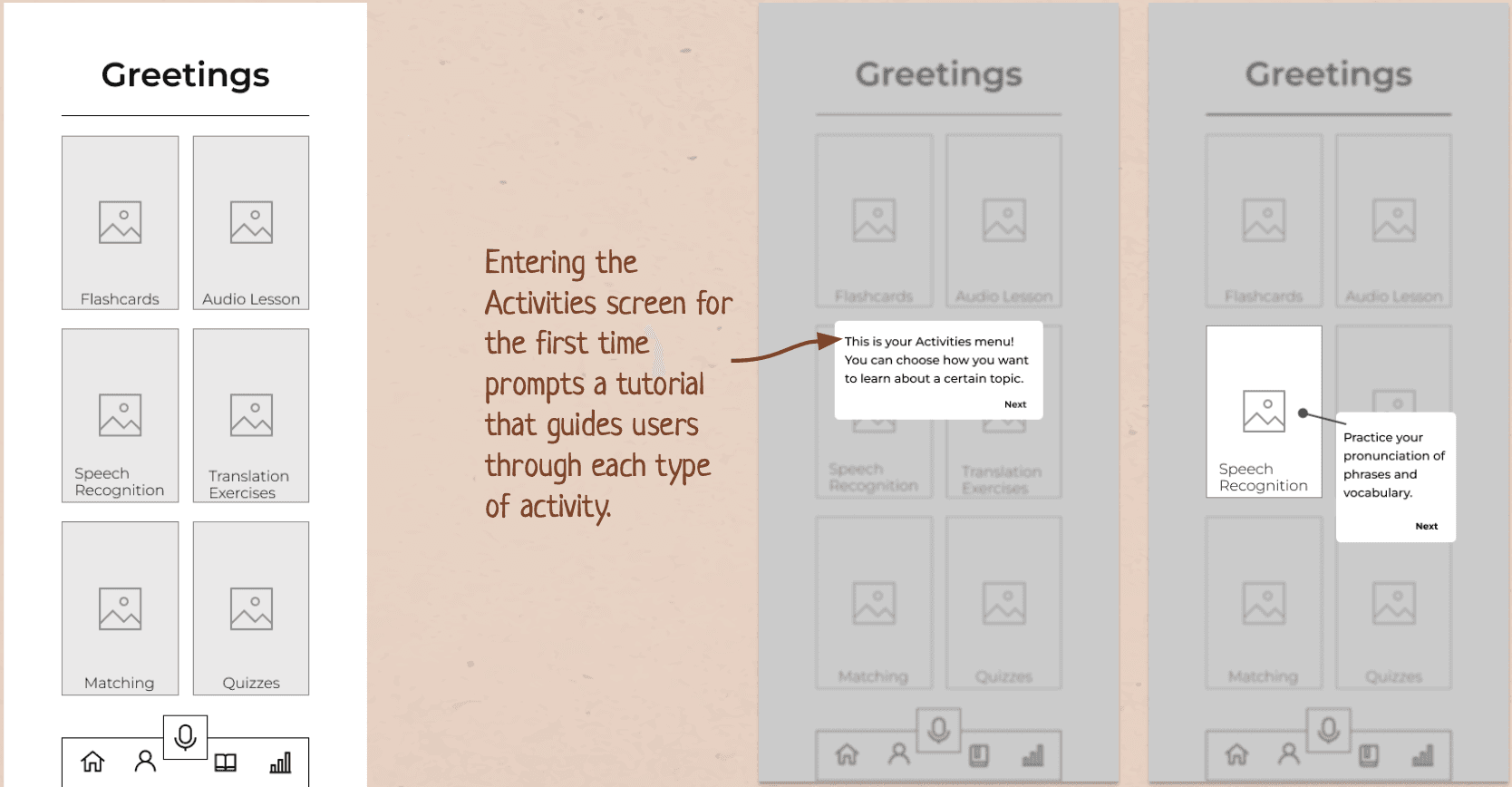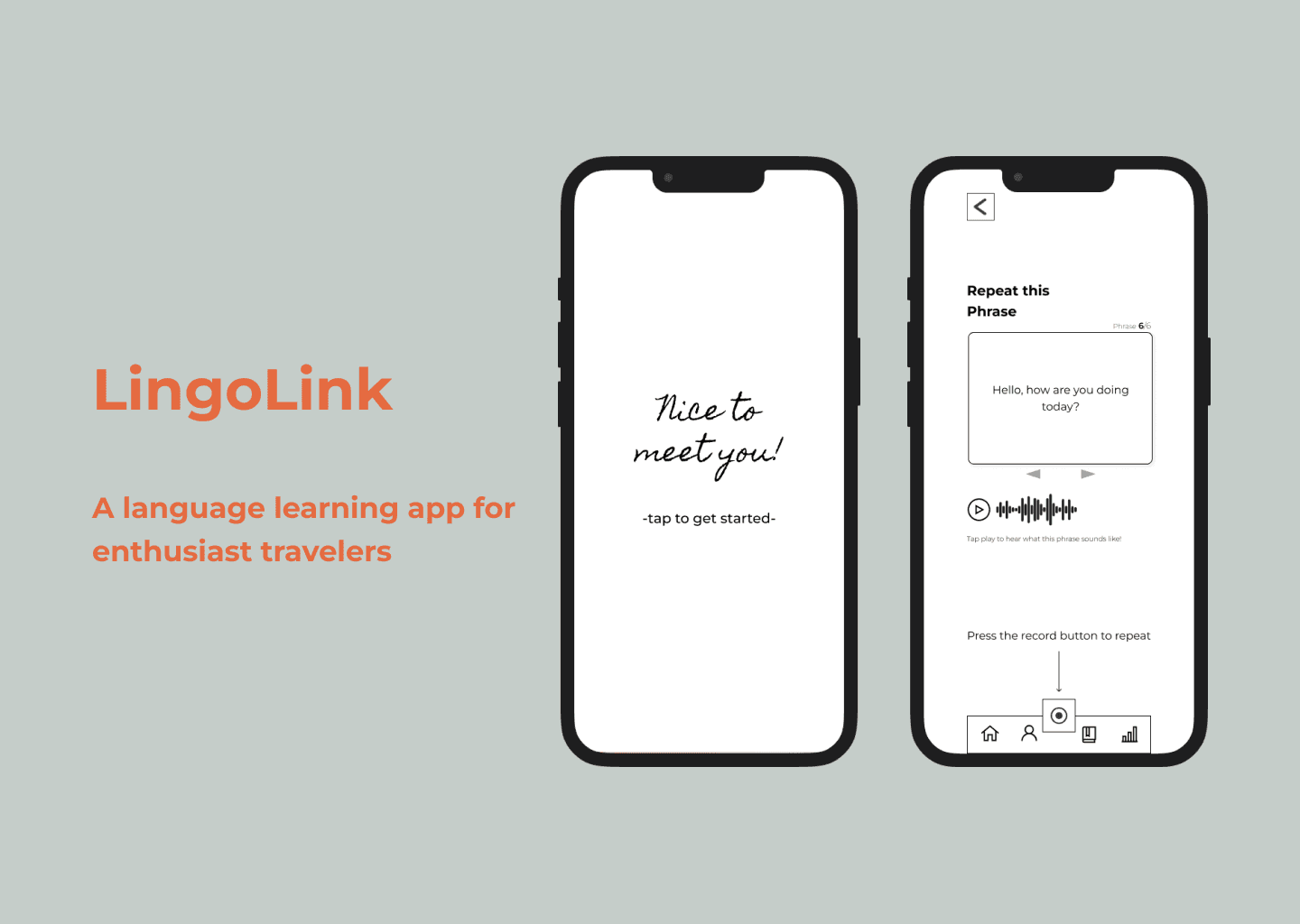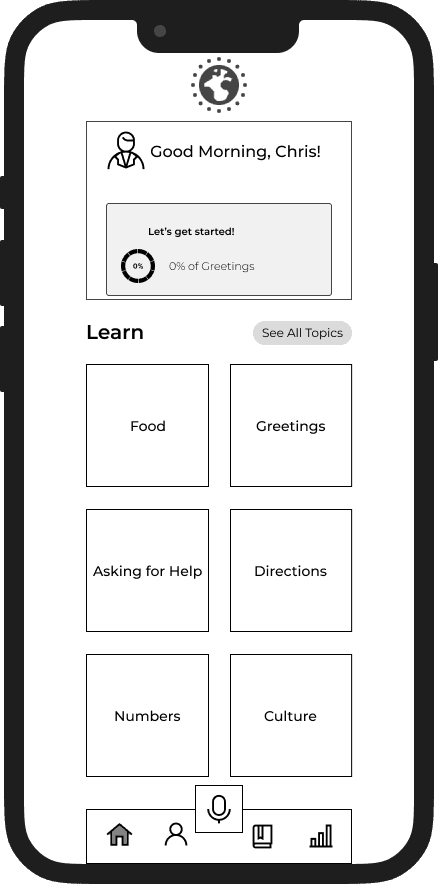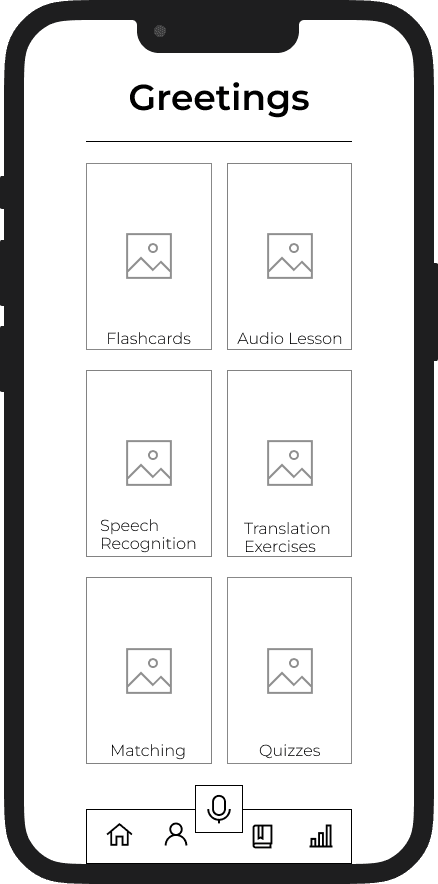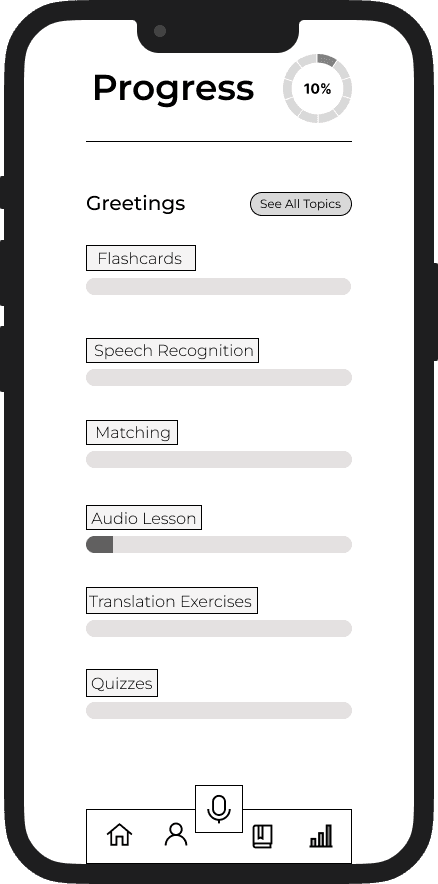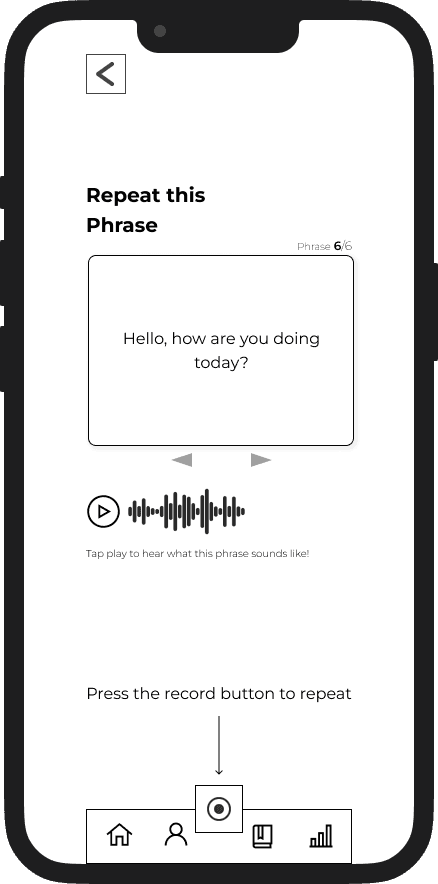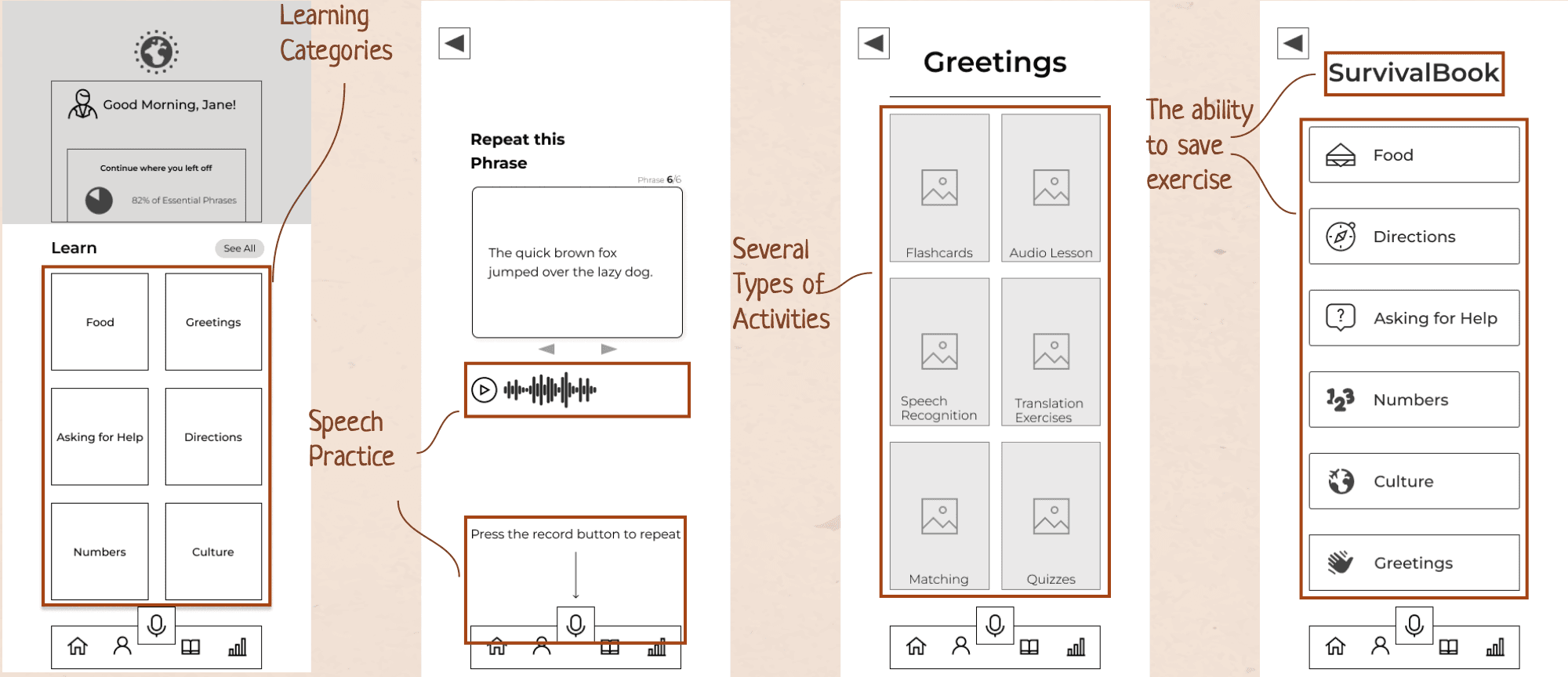Timeline - 2 weeks Role - UX Researcher & UI Designer (group project) Tools - Figma, FigJam
Problem
Travelers need to learn the basics of a new language quickly to survive, navigate and communicate in new countries
International travels present many opportunities for work and leisure. However, it can be very challenging to communicate because of language barriers, while travelers are immersed in a totally new environment and culture.
Becoming fluent in a language requires a significant amount of time and effort, but more than 40% of global consumers are willing to learn the basics of a new language before visiting a country*
300 words
30 hours
According to the CEFR* beginner level (A1) has a vocabulary of around 300 words
*Common European Framework of Reference for Languages
It may take around 30 hours of study time to learn 300 words in a new language
Solution
LingoLink - language app that could help travelers learn the bare minimum of the language to survive in a new country within a few days before their actual travel
1. Define essential topics and vocabulary
Pack solid minimum (300 words/ 30 hours) in essential topics
Arrange vocabulary and phrases according real life situations
2. Personalized learning experiences
Several types of activities allowing users to craft a learning experience that best facilitates faster learning for each individual
Speech practice with a native speaker’s audio clip of how to pronounce a certain word or phrase
Ability to save an exercise so that the user can return to it later to review, or save as an useful word or phrase
3. UI Solutions
User-friendly interface that is easy to navigate
Minimalistic style, simple and clean design with a focus on usability and functionality
Progress tracking, allows users to track their progress and overall performance
4. Learning Style
Minimal gamification aspects, because for motivated learners it can be distracting
Some users may become more focused on earning rewards and advancing through levels than on actually learning the language.
Business Background
$40.22 billion
Generated the worldwide language learning market in 2021
$8.21 billion
Generated by language learning apps
$250 million
Reported Duolingo (headliner language app) as revenue in 2021
Competitive Analysis + Key Findings
None of the main competitors on the market have travel as a study purpose
Primary research allows us to define 3 main competitors on the market and zoom them in to review their strengths and weaknesses.
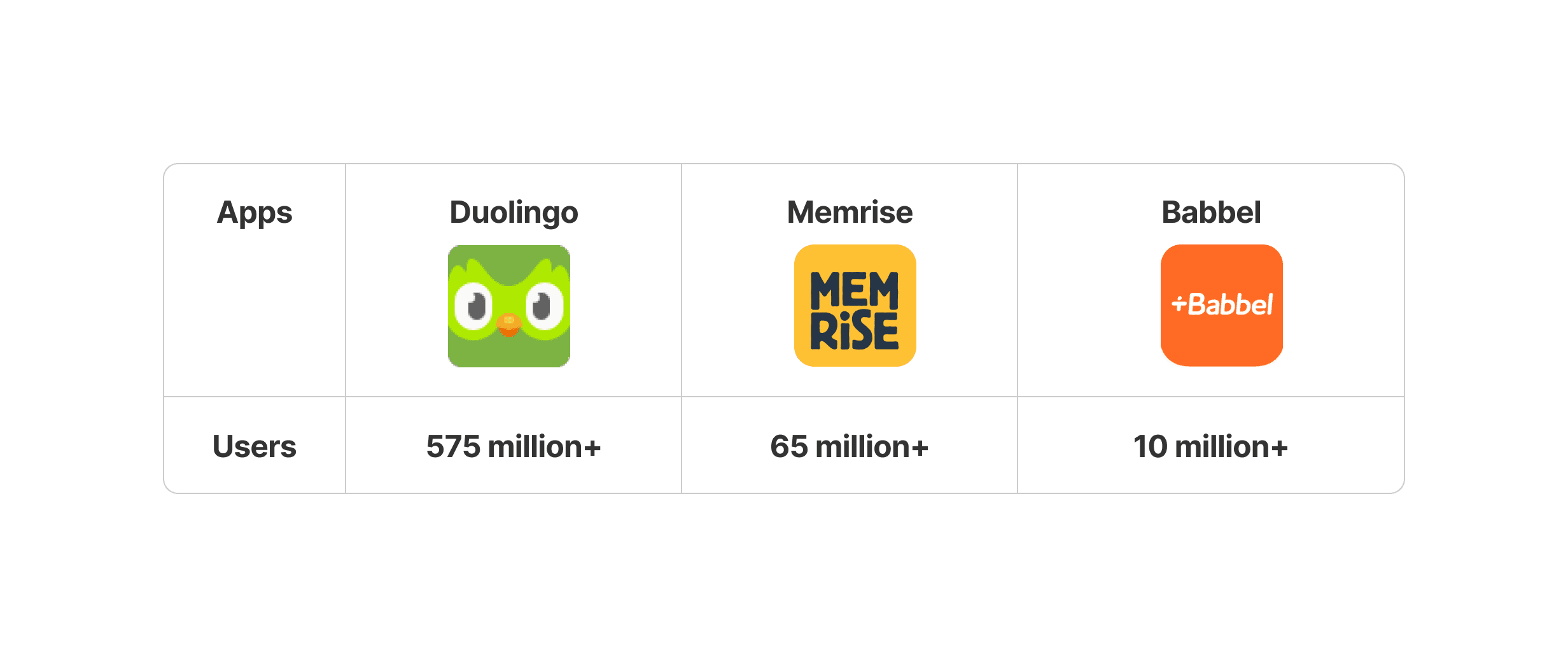
Gamification is used like a driver in the industry and users who find it distracting and prefer other methods of learning do not have many options
Free offline mode can be competitive advantage on the market and valuable for potential users
User Interviews
During the project's discovery phase, 7 individuals who met the target user's requirements were interviewed
We asked questions to better understand how users learn to develop an app that supports rapid language acquisition. We also asked people what they thought would be the most valuable things to learn.
Research questions:
1) Why did you begin to learn a new language?
2) Have you used a language learning platform before? If yes, which platform?
3) What are the most essential topics you need to hold a conversation in a foreign country?
4) How do you learn languages the best?
5) What makes it easy/difficult to learn a language quickly?
Major Insights
Theme 1: Essential content
Our users had similar ideas for what was considered an “essential topic” to know/learn about if they were to “survive” in a foreign country.
Theme 2: Learning Style
Users emphasized the importance of being able to speak with or listen to recordings of native speakers while learning a new language because it helped them improve on their pronunciation, tone, etc.
Theme 3: Context
Users wanted what they were learning to be applied in context (whether that was through using a vocabulary word in a sentence, or listening to music videos in a different language) so that they could better understand the language as a whole.
Academic Adventure Persona
Chris - 31 Years Old
Professor from Brazil
User Story
Chris has to learn the language quickly because he will be visiting the US in less than a week. He currently makes use of an app that teaches him a language's foundational vocabulary.
Behaviors:
Enjoys learning new languages
Listens to music and podcasts in different languages
Reads the news in different languages
Goals:
Learn a language quickly
Survive and be respectful in the country he is visiting
Be accurate with his pronunciation
Frustrations:
Past language learning platform threw to much at him all at once and it felt like a huge cognitive overload
He is auditory learner and wants more audio activities
Memorizing grammar and language rules can be confusing
Design
Highlights of some of the specific design solutions we chose to employ to solve the problem our users faced
Testing + Improvements
How do our ideas shape up to user needs and expectations?
83% of Users
Were confused or paused on our “Activity List” screen
67% of Users
Looked in an entirely different area of the app to find their “favorites/saved exercises” than we had intended
3 major improvements in the design
Responding to the User Feedback
